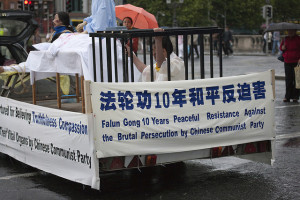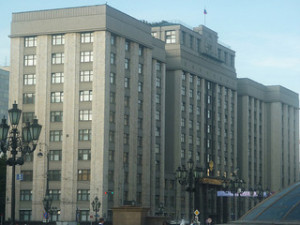Ask Egypt to Release These Journalists Immediately
 Three Al Jazeera English journalists, Peter Greste, Mohamed Fahmy, and Baher Mohamed, have been detained without trial for about two months. They have been in police custody since December 29, as they've been accused of "spreading lies harmful to state security and joining a terrorist organization." Specifically, they are accused of having ties with the Muslim Brotherhood, which was designated as a terrorist organization in December. This prisoners, as well as Al Jazeera, deny the allegations and are disappointed about their continued detention.
Three Al Jazeera English journalists, Peter Greste, Mohamed Fahmy, and Baher Mohamed, have been detained without trial for about two months. They have been in police custody since December 29, as they've been accused of "spreading lies harmful to state security and joining a terrorist organization." Specifically, they are accused of having ties with the Muslim Brotherhood, which was designated as a terrorist organization in December. This prisoners, as well as Al Jazeera, deny the allegations and are disappointed about their continued detention.
Their case finally did go to trial on February 20, a case that actually involves 20 people (including the three journalists and five students). Twelve of those people are being tried in absence. All 20 are charged with broadcasting false news and of either belonging to or assisting the Muslim Brotherhood movement. The trial was adjourned in late March and is scheduled to resume tomorrow, April 10.
Amnesty International says in their issue brief that Fahmy has been denied medical attention for a shoulder injury he sustained a few days prior to his arrest. Months of proper medical care have made the injury worse, where Fahmy now has difficulty moving his arm.
If you think that using articles from Al Jazeera is too biased (I know people who would think that's biased and would therefore doubt the story), then here's an interview with CNN's Christiane Amanpour and an article from Poynter to corroborate the information.
Write a Letter to #FreeAJStaff
Writing a letter may not seem like much, but journalists write articles, take photos, and shoot video every day. The work seems inconsequential, but the work can also have a huge impact when the right people see it, when the information is presented in the right way, or when people speak out about the news they see (or the lack of news on other issues that they do see). The point is writing a letter can make a difference in freeing these journalists, and the others, if enough people write letters. Writing a letter will present our voices in a whole new way, augmenting the coverage of Al Jazeera, the current activism of others as well as the Twitter campaign with the hashtag #FreeAJStaff.
To help, Amnesty International has provided all the pertinent information in their issue brief for you to write a letter on behalf of Al Jazeera's journalists. The brief also includes information about the five students who are being tried with the journalists as well as background information about the trial and why Egypt has been targeting Al Jazeera staff and other journalists. The three Al Jazeera journalists are not the only journalists facing trial, but the others are part of the 12 being tried in absence.
Please send letters to:
Public Prosecutor Hesham Mohamed Zaki Barakat Office of the Public Prosecutor Supreme Court House, 1 “26 July” Road Cairo, Arab Republic of EGYPT
Sample Letter
Hesham Mohamed Zaki Barakat Office of the Public Prosecutor Supreme Court House, 1 “26 July” Road Cairo, Arab Republic of EGYPT
Dear Chancellor,
I am writing in concern for MOHAMED FAHMY, PETER GRESTE, and BAHER MOHAMED, three Al Jazeera journalists who have been detained since December. They are currently being tried for broadcasting false news and for involvement with the Muslim Brotherhood.
I ask that the authorities release them immediately and unconditionally, as they have been arrested and charged solely for peacefully exercising their freedom of expression.
I also call on you to order independent and impartial investigations into all allegations of ill-treatment and to ensure that MOHAMED FAHMY has access to any medical attention that he may require.
Please ensure that the journalists, and the five students: SOHAIB SAAD MOHAMED, KHALED MOHAMED ABDEL RAOUF, SHADY ABDELHAMID, AHMED ABDELAZIM, and ANAS MOHAMED EL BELTAGY, receive a fair trial under international standards and are protected from torture and other ill-treatment, and to drop any charges solely resulting from their peaceful exercise of the freedom of expression.
Sincerely,
Your Name
photo credit: Mohammed Nairooz via photopin cc


